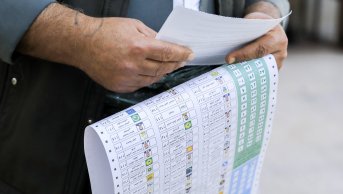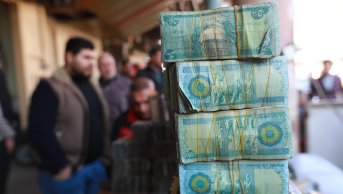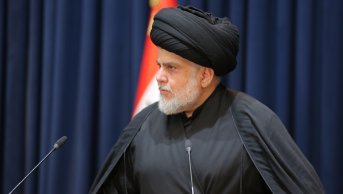Reflections of the Kirkuk Crisis

The Iraqi province of Kirkuk, which is home to many problems and conflicts of interest continues to be in the news due to flag crisis and the referendum planned by the Kurdish Regional Government (KRG). The flag crisis should be evaluated in the light of previous developments. The new conflicts of interest in Kirkuk have different actors facing off against each other. Among the problems in Kirkuk one may list language, the flag, provincial elections, oil and the KRG independence referendum.
The Situation of Kirkuk
While article 140 of the Iraqi Constitution foresaw the resolution of the status of Kirkuk before December 31st of 2007, no solution has yet been reached. Under the de facto situation, the legal authority of Baghdad over Kirkuk continues. However, the peshmerga have replaced the Iraqi army around town, when the later retreated from ISIS. Therefore, Kirkuk is now governed by the Patriotic Union of Kurdistan (PUK), without any legal grounds.
In 2014, facing an ISIS offensive, the federal government had to withdraw its troops that were stationed in the proximity of the oil wells around Kirkuk. Most of these wells were taken over by Kurdistan Democratic Party (KDP), while the remainder were taken over by peshmerga loyal to the PUK. Therefore influence of KDP in Kirkuk, which had been controlled by the PUK since 2003, began to increase. The agreement between Erbil and Baghdad on oil exports led to concerns that the PUK and Kirkuk Governor Najmiddin Karim would lose all control. As a result the peshmerga loyal to the PUK stormed the offices the Northern Oil Company controlled by Baghdad. Regarding the attack PUK announced it was "a warning to the Iraqi government" and soon the transfer of oil to Ceyhan was halted. The event, which took place before the flag crisis, is a good indicator of the separation among Kurdish political camps.
Echoes of the Flag Crisis
One of the developments that led to the flag crisis in Kirkuk was the announcement by Kameel Saleyi, district governor of Kirkuk, that official writing at the governor's office and the governorate council would take place in Kurdish. The announcement was issued on the International Mother Language Day. Saleyi claimed this was legal as per paragraph 3 of article 4 of the Iraqi Constitution. However the Iraqi Constitution defines official languages as those to be used in "spaces open to the public such as the parliament, the council of ministers, courts and official conferences." Applying paragraph 3 of article 4 of the constitution to Kirkuk is illegitimate. For the scope established in this paragraph covers only the official bodies and agencies of the KRG. Paragraph 5 of the same article allows for Turkmen and Assyrian to be used as official languages in regions heavily inhabited by the Turkmen and Assyrians. This paragraph, unlike the previous, does not come with a geographical limitation. There is no legal barrier for this paragraph to apply in Kirkuk.
Following the district governor of Kirkuk calling for the use of Kurdish as the official language, provincial governor Najmiddin Karim brought a motion before the provincial council for the use of Kurdish in official correspondence in Kirkuk and the flying of the KRG flag from official buildings in the province. Following the statement of Governor Karim that "this flag is not just the flag of Kurds, but all ethnic groups in Kirkuk" some Turkmen and Arab member of the provincial council boycotted the meeting. However, the motion was passed by the provincial council.
The Flag Crisis and the Turkmen
The Turkmen, who felt themselves overlooked in Kirkuk, gathered in street demonstrations. It may be said that the demonstrations of the Turkmen were against all unilateral actions taken to their disadvantage since 2003. According to temporary articles 58 that referenced article 140 of the constitution, nationalised land in Kirkuk was to be returned to owners. However, Turkmen lands have not been returned. Governor Karim has continued to nationalise Turkmen land to establish Kurdish settlements on them. The street rallies only calmed down after President Ershat Salihi of the Iraqi Turkmen Front (ITF) took the decision to court. Due to the flag crisis, Kirkuk Provincial Governor Karim has faced a lot of reaction. The United Nations Mission to Iraq announced that for the KRG flag to be flown in Kirkuk, "the status of the province needs to be determined" and opposed the decision. Ministry of Foreign Affairs of the Republic of Turkey stated its opposition to "unilateral undertakings in violation of the Iraqi Constitution". The Iraqi Parliament convened under Salim al-Jabouri to issue a decision that only the flag of Iraq may be flown in Kirkuk. The court has also ruled that the flying of the KRG flag in Kirkuk was unconstitutional. Despite all this, the KRG flag continues to fly from the masts in Kirkuk. The central government does not have the means necessary to implement the decisions in Kirkuk.
Kirkuk and the Regional Equation
Behind the actions of the provincial governor of Kirkuk lies the influence of political balances within his own party and the KRG. Nijmiddin Karim is a member of the PUK politburo, other than his duties as governor. He wants to gain more power within the party by using his position in Kirkuk. He also wants to mobilise Kurdish nationalist sentiment and unite the population around himself in order to prevent KDP from gaining influence in Kirkuk. The decision taken by KDP to hold a referendum on independence may be evaluated in light of the same motive. They too want to draw Kurds to themselves over the issue of independence. The political moves taken by the KDP and PUK ignore the Turkmen presence in the region. The banners put up by the Turkmen Nationalist Movement (TNM) opposing the referendum have been taken down by peshmerga in official uniforms in Kirkuk. President Ershat Salihi of the ITF has objected to the pressure on Turkmen, saying "This means of administrative, economic and political threats to Kirkuk in the near future and a signal for war". The developments have brought all Turkmen political parties closer together and encouraged them towards a common struggle.
While the constitutional status of Kirkuk is not clear, there has been no official transfer of authority to the KRG. It is de facto governed by the PUK. Various actors manage the oil wells around Kirkuk. Although the PUK enjoys greater influence in Kirkuk, KDP controls the greater number of oil wells, which leads to disputes. Political actors try to build power in the region through a policy of maintaining the de facto status quo. The flag crisis should not be seen as simply a reaction official buildings flying the KRG flag. It was also a response to the type of politics pursued by Governor Karim and other political actors. In the post-2003 period, Kurdish migration to Kirkuk has transformed the demography of the town. The Turkmen have been sidelined and their demands and rights have been violated. The Turkmen are prevented from exercising their constitutional rights. In the light of the crises in the region, Kurdish parties have united against the Turkmen. On their part, the Turkmen want to gather the Turkmen Coordination Board to join the struggle more actively. The decision of the Iraqi court for the removal of the KRG flag from Kirkuk will allow Turkmen political groups an opportunity to make themselves better heard in the international arena. In the region, Baghdad, Turkey and Iran have expressed opposition to KRG flag. This pressure will determine how strongly Governor Karim will be able to insist on his decision to fly the KRG flag.












